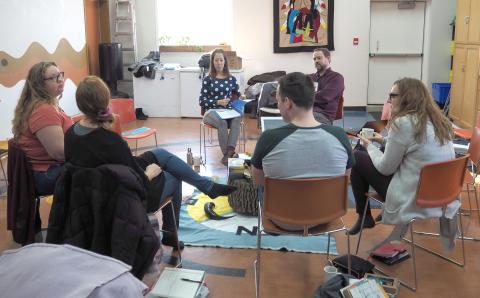In a prior career, I spent several years as a marketing executive and helped create messaging for various products and services. The objective was to create specific associations with a product based on the words we used.
We are all familiar with the power of advertising to influence us. Words such as “Google” no longer refer only to a company name and are used as nouns or verbs in our regular conversation (e.g., to “google” means to search for information online). Kleenex, Xerox, and Band-Aid are other brand names we often use generically. Consistent repetition of these words has helped to ensure that the brand names take on a meaning larger than themselves in our human consciousness.
That same power behind select words is at work in our lives and ministries today. I lament the fact that words such as “neighbor,” “justice,” and “racism” no longer have common meanings we can all embrace. Instead, their meanings shift depending on the context and the frequency with which they are used in our own communities and conversations.
As we slip more and more into echo chambers—media habits and social communities that share our political, theological, and sociological points of view—this differentiation increases. Each specific community speaks its own language, and our ability to listen to others who are different from ourselves becomes harder and harder.
This has a huge effect on the church as well. One need only look at comments on The Network (crcna.org/Network) to see this in action. Sometimes we seem to be talking past each other, with no one truly hearing or understanding what someone else is trying to say.
I long for a day when our entire Christian community, and indeed our nations, could embrace a common meaning for critical words. What if any time we heard the word “love” we immediately associated it with Christ’s love for us as explained in John 3:16? What if every time we heard the word “justice” we immediately associated it with God’s desire for justice in the nations as God states in Amos 5:24 and Micah 6:8? What if every time we heard the word “peace” we immediately thought of the shalom that comes from fully embracing the work of the Holy Spirit in communities worldwide as described in Romans 15:13?
Imagine what the church would look like if we were able to put aside our political and theological differences and instead develop a common language based on our shared identity in Christ. While we might have to take more time, listen more closely, and put aside our assumptions, I believe that God’s kingdom work would be advanced as a result.
About the Author
Colin P. Watson Sr. is the executive director of the CRCNA. He is a member of Madison Square Christian Reformed Church in Grand Rapids, Mich.






